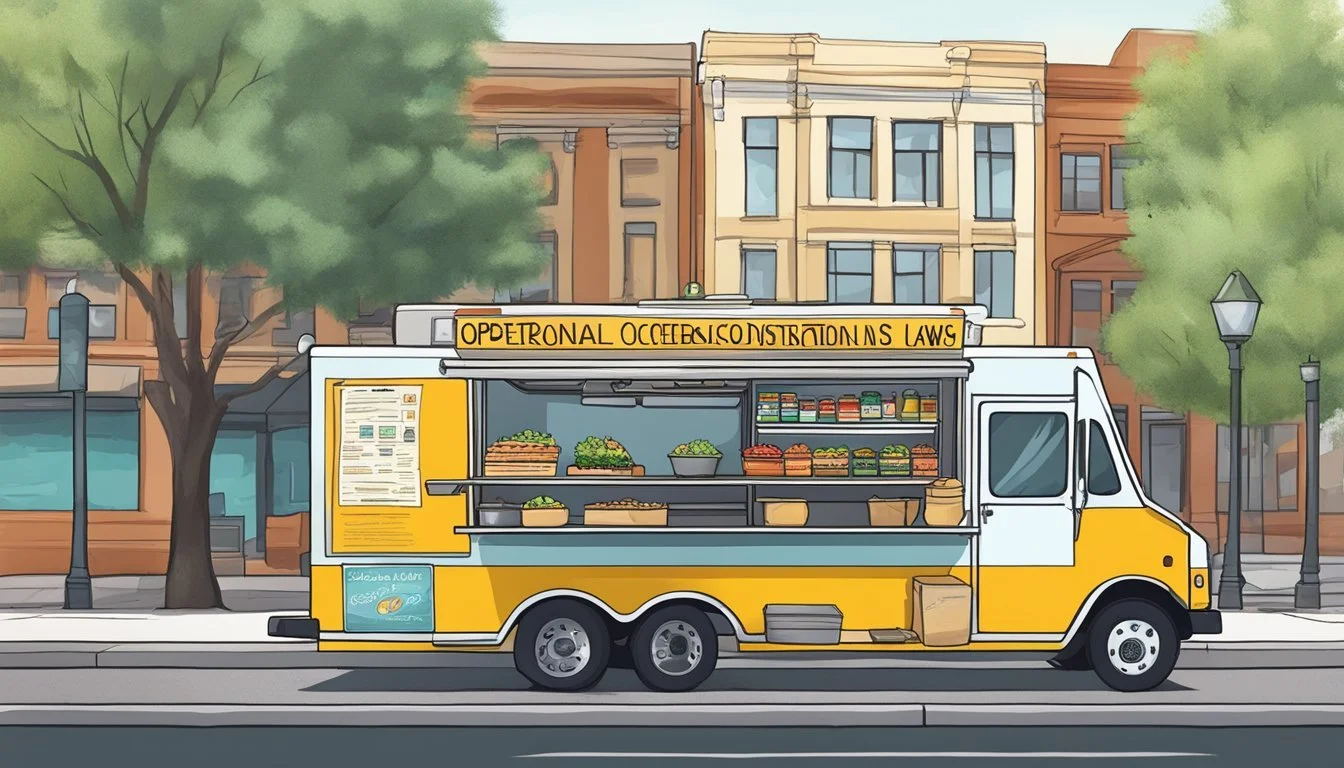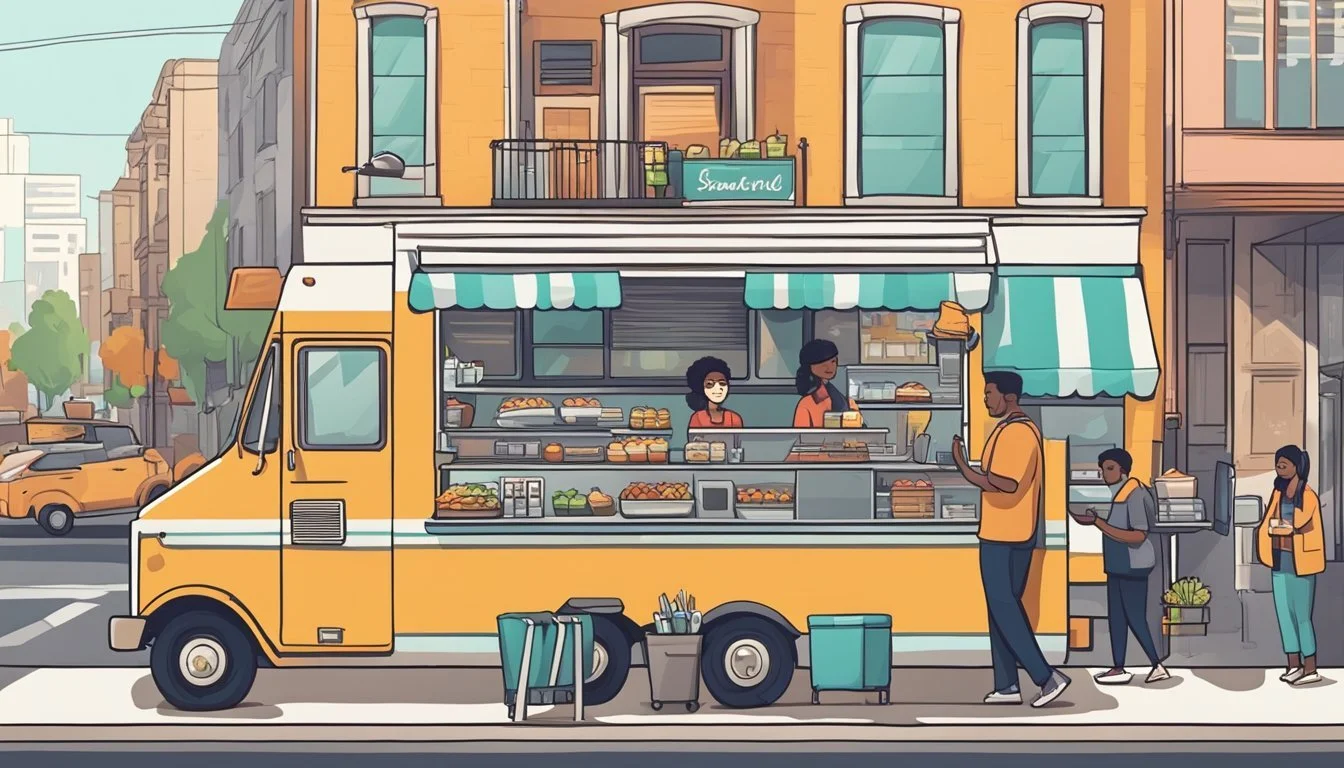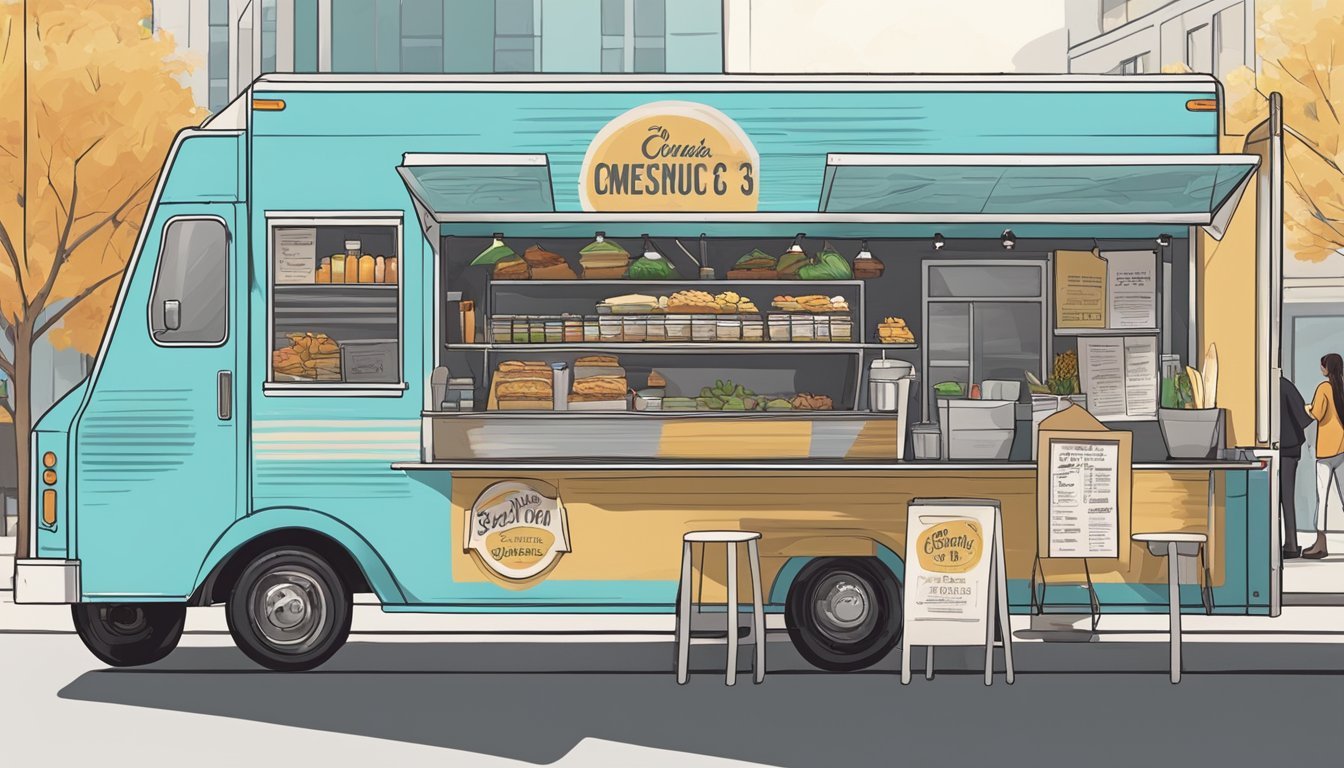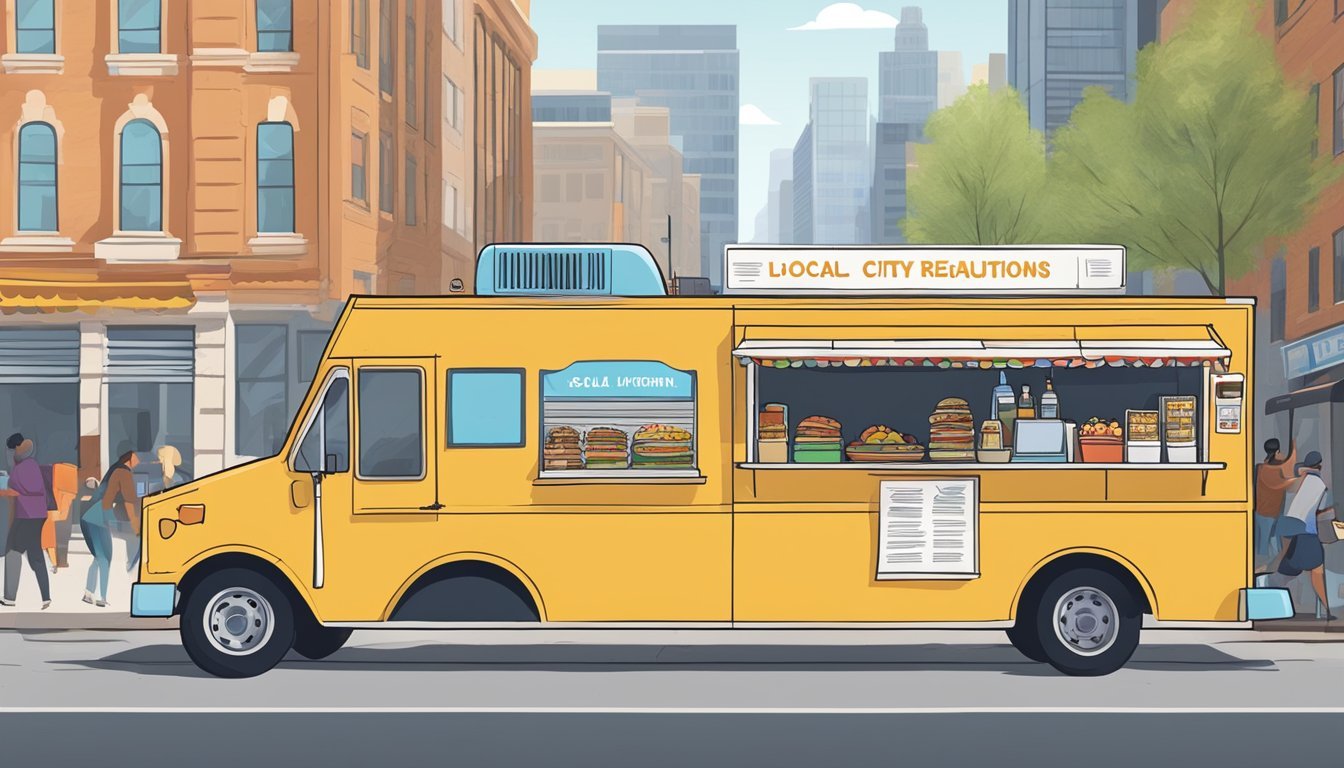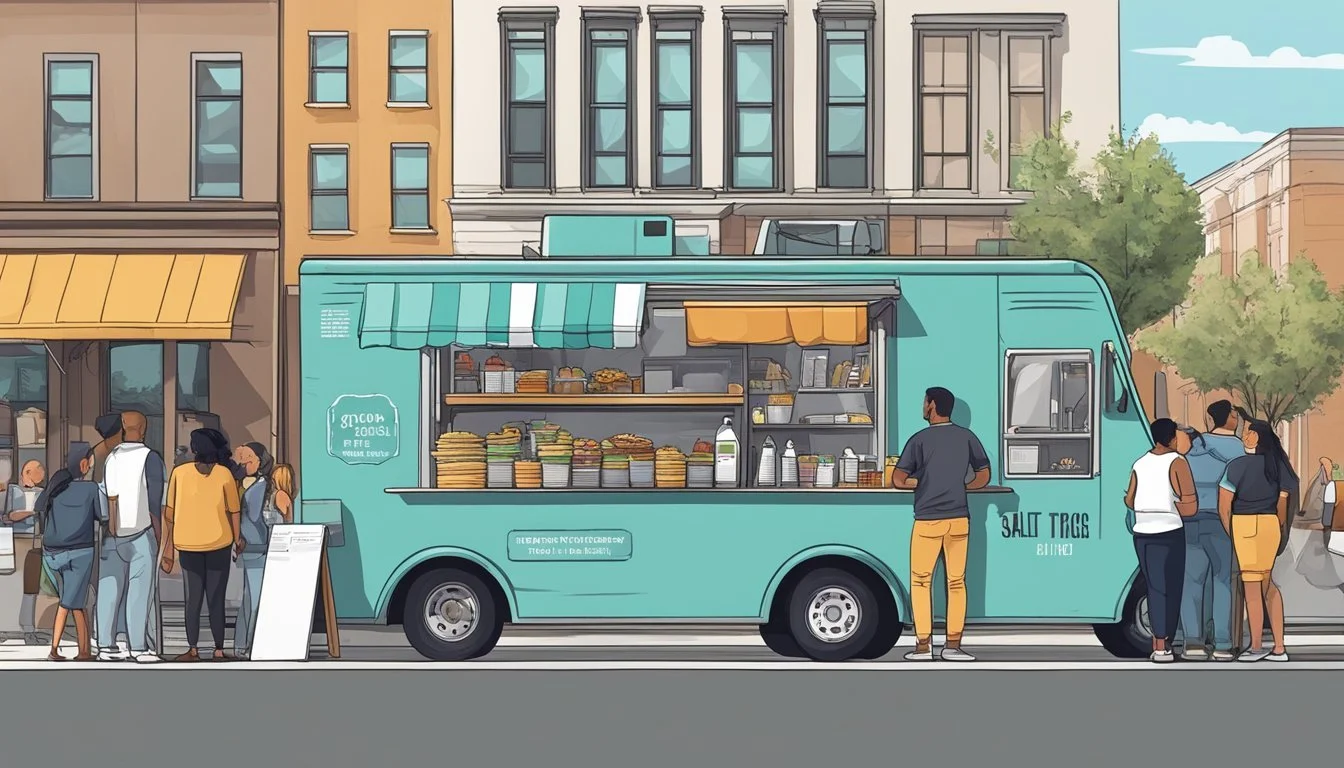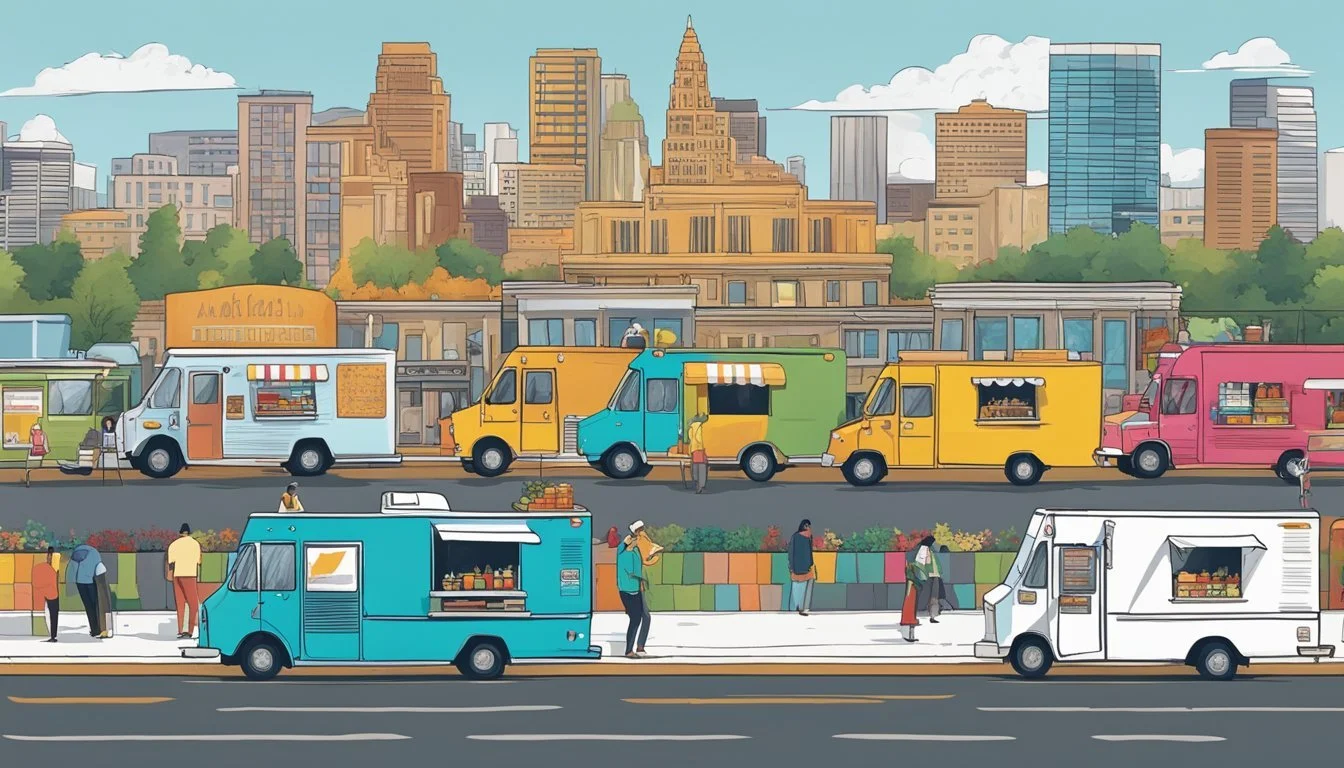Food Truck Laws Salt Lake City, Utah
Key Regulations for Mobile Vendors
Navigating the legal landscape of food truck operations in Salt Lake City, Utah, requires a thorough understanding of various regulations and requirements. As a food truck entrepreneur, compliance with local ordinances is crucial to ensure the smooth operation of your mobile culinary venture. Salt Lake City has set forth specific guidelines that govern where food trucks can operate, the health and safety standards to be maintained, and the necessary permits and licenses to be acquired.
Starting a food truck in this region entails obtaining approval from multiple departments, including the Department of Economic Development and Salt Lake County Health Department. These entities ensure food trucks meet fire safety standards, food safety ordinances, and proper waste disposal methods. Furthermore, Salt Lake City Business Licensing is an essential stop for mobile food vendors to ensure all paperwork is complete and current, allowing them to do business within the city. The process is designed to protect both the vendors and the public by maintaining high standards for food safety and public health.
To support potential and existing food truck owners, the city provides resources detailing the steps to begin operating a food truck, including classes and contact information for city officials. These resources are valuable assets for entrepreneurs to stay informed and compliant with local regulations. With a solid understanding of the underlying food truck laws and a commitment to adhering to them, business owners can focus on what they do best: serving up delicious food to Salt Lake City's residents and visitors.
Establishing Your Food Truck Business
In Salt Lake City, setting up a food truck business requires careful attention to legal requirements and a strategic approach to business planning. Ensuring that all steps are meticulously followed will lay a solid foundation for your venture.
Choosing the Business Structure
The choice of a business structure is pivotal due to its impact on taxes, liability, and business operations. For food trucks in Salt Lake City, the Limited Liability Company (LLC) is a popular option, as it provides flexibility and personal asset protection. Partnerships may also be favorable for joint ventures, sharing profits, and responsibilities according to a legal agreement.
Registering Your Business
Once the structure is set, registering the business is the next crucial step. This involves obtaining an Employer Identification Number (EIN) from the IRS, which is necessary for tax purposes. Then, securing a business license from Salt Lake City is mandatory. You can find detailed procedures and contacts for this process in the Salt Lake City Food Truck Guide.
Insurance and Risk Management
Food trucks must also address insurance and risk management, ensuring that they have a comprehensive business insurance policy that includes vehicle insurance, liability, and workers' compensation. Obtaining a certificate of insurance demonstrates proof of coverage, essential for protecting the business against unforeseen events. Consulting with an attorney and an accountant can provide tailored advice to suit specific business needs, contributing to the mitigation of legal and financial risks.
Legal Requirements and Compliance
In Salt Lake City, food truck operators must navigate through a series of legal requirements to ensure their mobile food business complies with state and local legislation. Maintaining adherence to licensing protocols, health regulations, and vehicle standards is crucial.
Licensing and Permits
To operate a food truck, it is mandatory to obtain a Salt Lake City Business License as well as additional permits specific to mobile food businesses. These include, but are not limited to, a mobile food vendor permit and a food handlers license. The process involves coordination with multiple municipal departments, ensuring that every food truck adheres to the standards set forth by local governance.
Food Safety and Health Department Approval
Before hitting the streets, food trucks must pass a detailed inspection by the Salt Lake Valley Health Department. This ensures they meet all food safety requirements — from food preparation and storage practices to employee hygiene. Regular compliance checks are conducted to maintain high safety standards and protect public health.
Vehicle and Equipment Regulations
The equipment used within food trucks must comply with specific safety regulations. This includes regular inspections of cooking appliances to meet fire safety guidelines and mechanical checks on the mobile food truck itself to ensure safe operation within city limits. Thorough compliance with these regulations helps ensure that the restaurant on wheels operates as safely as its traditional brick-and-mortar counterparts.
Operational Considerations
Running a food truck in Salt Lake City calls for careful consideration of specific local regulations and practices to ensure smooth and lawful operations. Business owners must navigate the intricacies of location selection, adhere to rigorous health and safety policies, and carefully plan their menus with both regulations and ingredient sourcing in mind.
Location and Parking
Salt Lake City regulations stipulate designated parking spots and hours for food trucks, showcasing a need for strategic planning. It’s essential for owners to familiarize themselves with the municipal code that outlines permissible parking locations, including restrictions on setting up on private property without express consent. Additionally, a restroom agreement may be required if a food truck operates in a particular location for an extended period.
Health and Safety Operations
To safeguard public health and align with Utah's food safety guidelines, food truck operators must ensure strict employee health practices and sanitation protocols. The Salt Lake County Health Department provides oversight, requiring operators to undertake food handling training and secure necessary permits. Regular health inspections enforce compliance, especially in areas of food storage, temperature control, and cleanliness.
Menu Planning and Ingredients
Creative and compliant menu planning hinges on the use of fresh ingredients that meet local and federal food safety standards. Owners must source their ingredients from approved vendors while being mindful of vending routes to sustain ingredient freshness during transit. Menu items must be prepared in a manner that mitigates foodborne illness risks, complying with safety regulations at every step.
Logistical and Environmental Practices
In Salt Lake City, food truck operators must adhere to strict waste management protocols and strive for sustainable operation methods to maintain a clean and attractive condition for their mobile food ventures.
Waste Management
Food trucks within Salt Lake City limits are required to provide trash and recycling containers for public use. It is mandatory for operators to ensure that these facilities are easily accessible to customers, promoting proper waste disposal practices. Furthermore, containers should not only be available but also regularly emptied and cleaned, preventing overflow and unsanitary conditions.
Sustainable Operations
The city encourages food trucks to engage in sustainable operations. They must operate in a manner that conserves resources and reduces environmental impact. Key measures include utilizing eco-friendly materials for serving and packaging, investing in energy-efficient appliances, and managing food waste effectively. Food truck operators are expected to keep their operation zones in a condition that is both aesthetically pleasing and environmentally conscious, reflecting the city’s dedication to a 'green' image.
Sales and Customer Service
Operating a food truck in Salt Lake City requires adherence to specific regulations concerning sales transactions and nurturing customer relationships to ensure a thriving mobile business.
Transactions and Taxation
Every food truck owner must collect sales tax on each sale, as governed by Utah state law and local jurisdictions. This taxation process necessitates meticulous recording and reporting practices. It's important to use a reliable POS system to process transactions that can handle the calculation and collection of Salt Lake City's sales tax, thereby ensuring compliance with the State of Utah Department of Commerce regulations.
Building Customer Relationships
The food truck industry thrives on strong customer relationships; consequently, outstanding customer service becomes a pivotal aspect of business. Food trucks should engage with the community through various methods such as soliciting feedback, crafting a loyal customer program, and maintaining active social media presence. These strategies help in fostering trust and loyalty among patrons, which can lead to a robust repeat customer base and perhaps an enhanced reputation within the Salt Lake City Economic Development community.
Marketing and Promotion
Proper marketing and promotion are crucial for the success of a food truck in Salt Lake City. They enhance visibility, foster brand recognition, and help build a loyal customer base.
Branding and Online Presence
A food truck's brand identity is vital. It includes the visual design of the truck, an easily recognizable logo, and a consistent color scheme. This identity should carry over to their online presence, which encompasses a professional website and active social media channels. Food trucks might consider listing their menu and schedule on Salt Lake City's Food Truck Guide, enabling potential customers to easily find and follow them.
Participation in Local Events
Food truck operators should seek out opportunities to be part of special events and festivals. Active participation in local events, such as the Salt Lake City's Food Truck and Brewery Rally, not only boosts sales but also solidifies their status as an integral part of the mobile food business community. Networking with event organizers and other food trucks can lead to shared information about upcoming events where they can serve.
Local Regulations and City-Specific Provisions
Navigating the legal landscape for food trucks in Salt Lake City requires an understanding of both zoning restrictions and operating standards. Food truck owners must comply with city and county regulations, including specific zoning laws and operational requirements, to run their businesses legally.
Salt Lake City Zoning and Location Restrictions
Salt Lake City imposes specific zoning laws that food trucks must adhere to. The areas zoned for industrial use, M-1 (Light Manufacturing) and M-2 (Heavy Manufacturing), as well as the D-1, D-2, D-3, and D-4 downtown zones, allow for food truck operations. Additionally, G-MU (Gateway Mixed-Use) district permits food truck activity, enabling vendors to capitalize on mixed-use spaces. Each zone has unique constraints regarding the use of public and private land and proximity to brick-and-mortar establishments.
To legally operate, food trucks must obtain a Salt Lake City business license and adhere to the guidelines set forth by the city's Transportation Division, which governs the permissible locations for vending and use of the right-of-way. Restrictions are in place to ensure the free flow of traffic and the safety of pedestrians and motorists. These criteria include but are not limited to distance from crosswalks, fire hydrants, and bus stops.
Operating Standards within Salt Lake County
Salt Lake County’s Health Department necessitates compliance with food safety and sanitation regulations. The Health Department requires mobile food service operators to register for a Mobile Food Service Class, which is crucial for ensuring public health and safety.
Standards for food trucks extend to the specifics of the vehicle's operation, such as the requirement for proper enclosures or canopy extensions to protect the food preparation and service areas. These measures not only comply with health codes but also provide comfort and safety for both the workers and the customers. Additionally, regulations cover the setup of the vending window, waste disposal, temperature control for food storage, and maintenance of the truck.
With careful attention to zoning rules and operational standards, food truck owners in Salt Lake City and the greater Salt Lake County can ensure they meet all necessary requirements for lawful and successful operations.
Event Participation and Catering
Food truck entrepreneurs in Salt Lake City must navigate a set of regulations when participating in special events or when extending their services to catering operations. These rules are put in place to ensure public health and safety, as well as fair business practices.
Requirements for Special Events
For any special event in Salt Lake City, food trucks must adhere to specific guidelines. Each occasion requires a food truck to have a valid permit visible to the public. Salt Lake County Health Department mandates notification of their participation in future events via an Extended Temporary Event Food Service Permit. This permit should clearly display the event name, location, and days of operation, ensuring transparency and compliance with local ordinances.
The commissary agreement is another vital requirement for food trucks. It is a regulatory measure ensuring that food trucks have a licensed facility to safely prepare and store food, which is crucial when serving at events. This agreement is typically a prerequisite for acquiring necessary permits for event participation.
Catering Operations and Expansion
When it comes to catering operations, food trucks in Salt Lake City are subject to the same stringent health and safety standards as they are during regular service along their designated routes. To expand into catering, they must ensure compliance with the Utah Administrative Food Truck Code, emphasizing food safety, proper waste disposal, and temperature controls.
Beyond this, food trucks looking to cater private events or expand beyond their usual route face additional scrutiny. They must maintain clear communication with the Salt Lake City Economic Development department to receive guidance and permission for such expansions of their operations. Catering offers an opportunity for food truck businesses to diversify their income and reach a broader clientele.
In both cases, whether catering or participating in special events, thorough planning and adherence to the legal requirements of Salt Lake City are critical for the successful and lawful operation of food trucks.
Food Truck Operations and Management
Operating a food truck in Salt Lake City involves stringent adherence to regulations and efficient management practices. The success of a food truck hinges on the operator's ability to execute a daily operations checklist and manage staff effectively, as well as streamline workflows to maintain consistency and quality of service.
Daily Operations Checklist
Before setting off for the day, food truck operators must ensure that they have completed a comprehensive checklist to meet Salt Lake City's health and safety standards. Essential items include:
Verifying freshness of ingredients
Ensuring all food handling areas are clean and sanitized
Checking that temperature controls for food storage are functioning correctly
Confirming food handlers' permits are up-to-date and available for inspection
Stocking adequate safety and cleaning supplies
Following the Salt Lake City Food Truck Guide ensures operators remain in compliance with city codes.
Managing Staff and Streamlining Workflows
For food truck operators, managing a lean team effectively is crucial. Key elements include:
Assigning clear roles and responsibilities to all team members
Providing continual training on food safety and customer service
Utilizing a point-of-sale system that streamlines transactions and tracks inventory
It's vital for mobile food vendors to maintain a professional environment, even in the close quarters of a food truck, to ensure swift and proficient service. While alcohol licensing is not commonly associated with food trucks, those food establishments that do offer it must manage additional restrictions and training. Employing a structured approach to workflows can significantly impact the productivity and customer satisfaction levels of the business.
Food Truck Community and Associations
In Salt Lake City, the food truck community is recognized for its diversity and the vibrant dining experiences it offers. Food truck operators often associate themselves with various organizations to ensure compliance with local laws and foster communal growth.
Key Associations:
Utah Food Truck Association (UFTA): This group advocates for food truck vendors and provides resources for starting and operating a food truck in Salt Lake City. By facilitating communication with local government bodies, UFTA plays a pivotal role in shaping the regulatory landscape for food trucks.
Networking and Education:
Monthly Meet-ups: Food truck owners regularly gather to discuss industry trends, share insights, and attend workshops focused on business best practices, health regulations, and culinary techniques.
Collaborative Events: Food trucks frequently participate in community events, which not only serve as lucrative business opportunities but also help to strengthen the food truck culture within the city.
Regulatory Adherence:
Food truck operators must stay informed regarding municipal regulations, such as health permits and parking restrictions. The Salt Lake City Economic Development Department provides guidelines for newcomers, while established vendors ensure ongoing compliance.
Temporary event licenses and full-term permits are often discussed at association meetings, ensuring food trucks operate legally during events and throughout the city.
Sustainable Practices:
Many food trucks in Salt Lake City are committed to sustainability. They actively partake in initiatives to reduce waste and promote eco-friendly operations. Associations provide education on best practices for waste management and energy-efficient operation.



